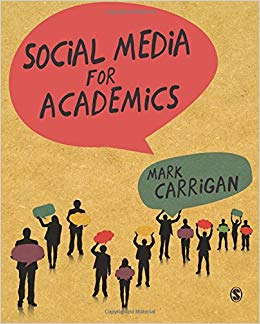
Credit: erhui1979/Getty
For scientists skittish about Twitter, here's a plan
Researchers need to rethink their aversion to talking about their work on social media, says digital sociologist Mark Carrigan.
8 May 2019

erhui1979/Getty
How can a scientist interact with online platforms and tools in a way that augments, rather than interferes with, their work? The issue is so fraught, Mark Carrigan wrote a book about it.
The digital sociologist from the University of Cambridge and author of Social Media for Academics spoke with Bec Crew about why many researchers shy away from using social media, and why they shouldn't be so hesitant.
Q: What gave you the idea to write the book?
A: I think it needed to be done, because the advice that had been available up until that point tended to be very small scale, and if you focus too narrowly on how to use a particular platform, you've missed the broader picture of how that fits in with the rest of your research activities.
I wanted to write something that would be a guide to the decision-making process around using digital media as a scholar.

Mark Carrigan
Q: What themes came out of your conversations with academics about social media?
A: One of the themes that occurs throughout the book is why you intend to use social media, and the importance of having a clear sense of purpose.
It’s about thinking through methodical questions such as, why are you doing this? What do you want to achieve? How much time and energy do you have available for it? How are you going to fit this together into a plan? It also keeps the focus on how it connects to your research activity. So, in what ways is this supplementing or replacing things that you already do?
These questions are really straightforward, but they tend not to be asked in relation to academics on social media. I think it's a sign of this being the next wave of communications – the thing we have to do or be left behind.

Social Media for Academics (SAGE Publications Ltd)
Q: Do academics often share their concerns with you about social media?
A: Yes, and that was the other reason why I wrote the book. During my PhD, I got very involved in training academics to use social media. I found a clear pattern, the same issues would come up time and time again, which piqued my interest and made me see it in a more sociological way.
One of the foremost questions I got was, how do you find the time for social media?
It's a perfectly reasonable question, but it also completely misses the point, because the people who are using these platforms in a successful way find it enjoyable. It's not an additional activity, it's not something they turn to after they finish their real work; it's part of their real work. They're doing things that they would've done at conferences, in libraries, in databases, but they're doing at least some of that through social media, and that makes a difference.
Q: Is there a sense that sharing their research on social media is a risk?
A: Fear of plagiarism is an issue. There's this sense that if we share our ideas openly, there's a hoard of vicious colleagues waiting to steal them. But actually, the real difficulty is in showing that you have any audience at all. The real challenge people face online is not being heard.
A common concern is also that you might struggle to get published in a journal if you share provisional thoughts online. And then there's the issue of their connection to their institutions. I think a lot of people feel like they are very actively encouraged to engage online in the name of impact and engagement, and yet, if something goes wrong, they'll take the blame for it.
What these problems all have in common is, what does it mean to be professional when you use social media? And the problem with that is no one really knows. It's hard to have clear standards.
Q: Why is plagiarism such a common concern?
A: There are two things going on there. One is that people are wary of sharing half-formed work in progress. They're scared it will stick to them online in a way that it wouldn't if they were sharing it at a conference.
The other is that people are scared that they'll share something important, and then it will be taken from them – someone will appropriate it and pass it off as their own. This has clearly happened on a few occasions, but it's nowhere near as pervasive as people seem to assume.
There's perhaps a grey area, too. Because ideas circulate more easily now, someone who's very engaged on social media will be exposed to a broader range of scholarly ideas than would usually be the case. There's a risk that you get influenced by ideas you've seen.
In some ways I think we still need scholarly standards and scholarly practices to catch up to this information environment.
Q: What should academics and institutions keep in mind when using social media?
A: Think about who you are. I've always struggled a bit with this, because I'm a white, middle-class man. The worst I ever get online is people being rude or making fun of me, whereas if you don't fit the stereotypical image of academic expertise online, then there's a very real risk of people attacking and undermining you.
This can range from micro-aggressions that may individually be tiring and not significant but can cumulatively become very exhausting, to some really serious abuse and harassment.
My concern is that universities are oblivious to this, and if they're locked into this focus on the successful communications of the corporate brand, they're not attuned to the risks their academics are facing through that public engagement.
This article is one of a series of Nature Index articles about social media and academic practice. Find out why maintaining professional social media profiles can be so complicated, and stay tuned for our top tips for researchers on building a professional Twitter presence.
